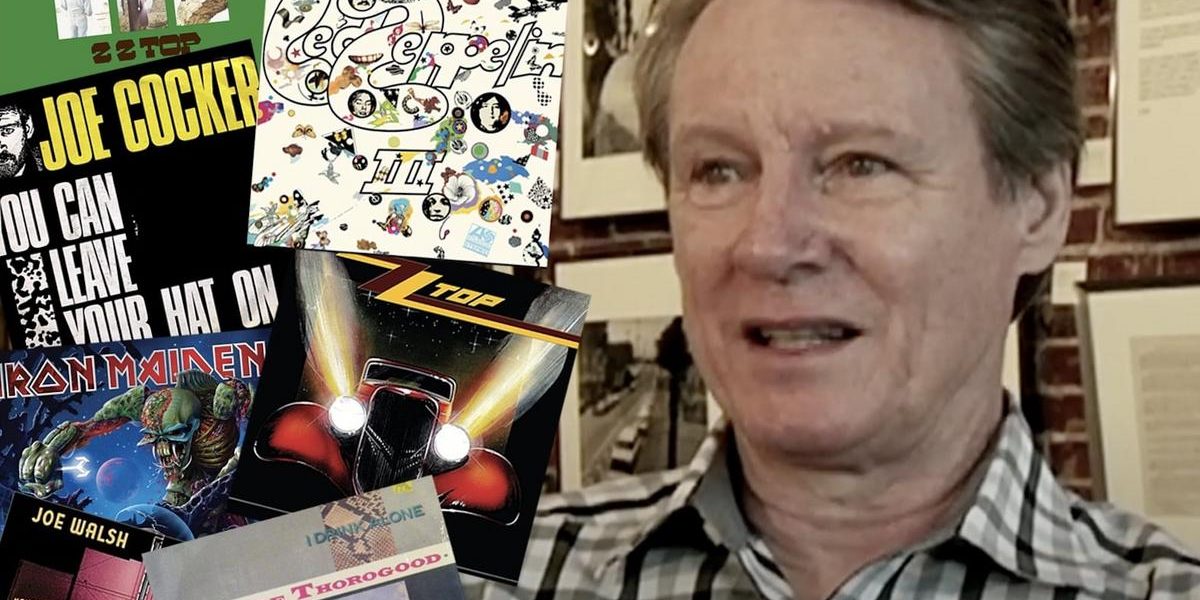Terry Manning, a renowned music producer and engineer known for his collaborations with iconic bands such as Led Zeppelin, ZZ Top, and Joe Walsh, has sadly passed away at the age of 77. His son, Lucas Manning, confirmed that he died at his home in El Paso, Texas, with reports indicating he experienced a “sudden fatal fall,” as noted by the Memphis Flyer, a publication that has chronicled Manning’s extensive career.
One of Manning’s pivotal roles in rock history was his engineering work on the groundbreaking 1970 album Led Zeppelin III. A talented musician himself, Manning’s connection with Jimmy Page began when his band, Lawson and Four More, opened for Page’s Yardbirds in 1966, during a performance on Dick Clark’s Caravan of Stars. This meeting marked the start of a lifelong friendship and professional collaboration.
READ MORE: Discovering the Best of Led Zeppelin’s 92 Songs
Manning fondly recounted his close friendship with Page in an interview with Memphis Magazine, sharing that Page would often send him cassette tapes of their early albums before their official release, seeking his opinion on their work. This camaraderie not only highlights their personal bond but also Manning’s influence on the band’s musical direction.
In the same year that Led Zeppelin III was released, Manning launched his first solo album, titled Home Sweet Home. He acknowledged that while Led Zeppelin’s initial albums showed promise, they lacked diversity. He believed that Page understood the significance of their third album, stating that it was crucial for establishing the band’s longevity. This strategic vision of pushing creative boundaries set the stage for Led Zeppelin’s enduring legacy.
The success of Led Zeppelin III was monumental, achieving six-times-platinum status and becoming a defining moment in the band’s history. Page later referred to this album as “the real beginning of the band,” underscoring its importance in their artistic evolution.
Manning was born in Oklahoma and experienced a nomadic childhood as the son of a traveling minister. His passion for music led him to Memphis, where he convinced his father to take a job, inspired by his early purchase of “Last Night” by the Mar-Keys. This single, which featured the address of Stax Records at 926 E. McLemore in Memphis, drove him to seek out the legendary studio, where he began his career in music.
By 1966, Manning had become one of the first employees at Ardent Studios, also collaborating with the legendary Willie Mitchell of Hi Records. His early work included recordings with R&B legends like Isaac Hayes, the Staple Singers, and Booker T. and the MGs, immersing him in the rich musical culture of the time.
“I received a comprehensive education,” Manning expressed in an interview with Commercial Appeal. He credited John Fry for teaching him the technical aspects of music production while learning the emotional nuances from Mitchell and the creative processes from talents like Steve Cropper and Booker T. He considered his experiences in these environments as the best education he could have received in the music industry.
Collaborations with Rock Legends: Joe Walsh, Iron Maiden, and Joe Cocker
In later years, Manning released albums such as a tribute to Bobby Fuller titled West Texas Skyline and Playin’ in Elvis’ House, which was recorded at the historic home of Elvis Presley on Audubon Avenue in Memphis. Following his work on Led Zeppelin III, Manning became widely recognized for his contributions as a studio engineer and producer for many of rock music’s greatest artists.
His notable partnership with ZZ Top began with the 1973 album Tres Hombres and continued with the engineering of their multi-platinum hit, Eliminator, in 1983. His most recent collaboration with the band culminated in the million-selling album Recycler in 1990, solidifying his reputation as a key figure in their sound.
Manning’s production credits also include significant albums like Molly Hatchet’s 1984 release The Deed Is Done, George Thorogood’s 1985 album Maverick featuring the hit “I Drink Alone,” Joe Cocker’s 1986 record Cocker with the iconic “You Can Leave Your Hat On,” and Joe Walsh’s 1987 album Got Any Gum?. Additionally, he contributed as a studio technician for Iron Maiden’s 2010 album The Final Frontier, further showcasing his versatility across genres.
During the mid-1980s, Manning spent time working out of the legendary Abbey Road Studios in London and later opened his own recording facility, known as Studio 6. In the early 1990s, he was commissioned by Chris Blackwell, the owner of Island Records, to lead the renovation of Compass Point Studio in the Bahamas, where he managed the studio for two decades. He also started a record label for archival Memphis artists called Lucky 7 and embarked on a successful photography career later in life.
“The people and places I’ve encountered throughout my career have been extraordinary,” Manning reflected in an interview with Commercial Appeal. “Having been part of the scenes at Stax, Ardent, Abbey Road, and Compass Point is something I cherish deeply. Sometimes I can’t believe my luck in having experienced all of this.”
Comprehensive Ranking of Every ZZ Top Album
Join us as we explore the complete discography of the legendary Little ‘ol Band From Texas, analyzing their studio albums from the debut release to ‘La Futura.’
Gallery Credit: Nick DeRiso
Are You a True Led Zeppelin Fan? Test Your Knowledge!





